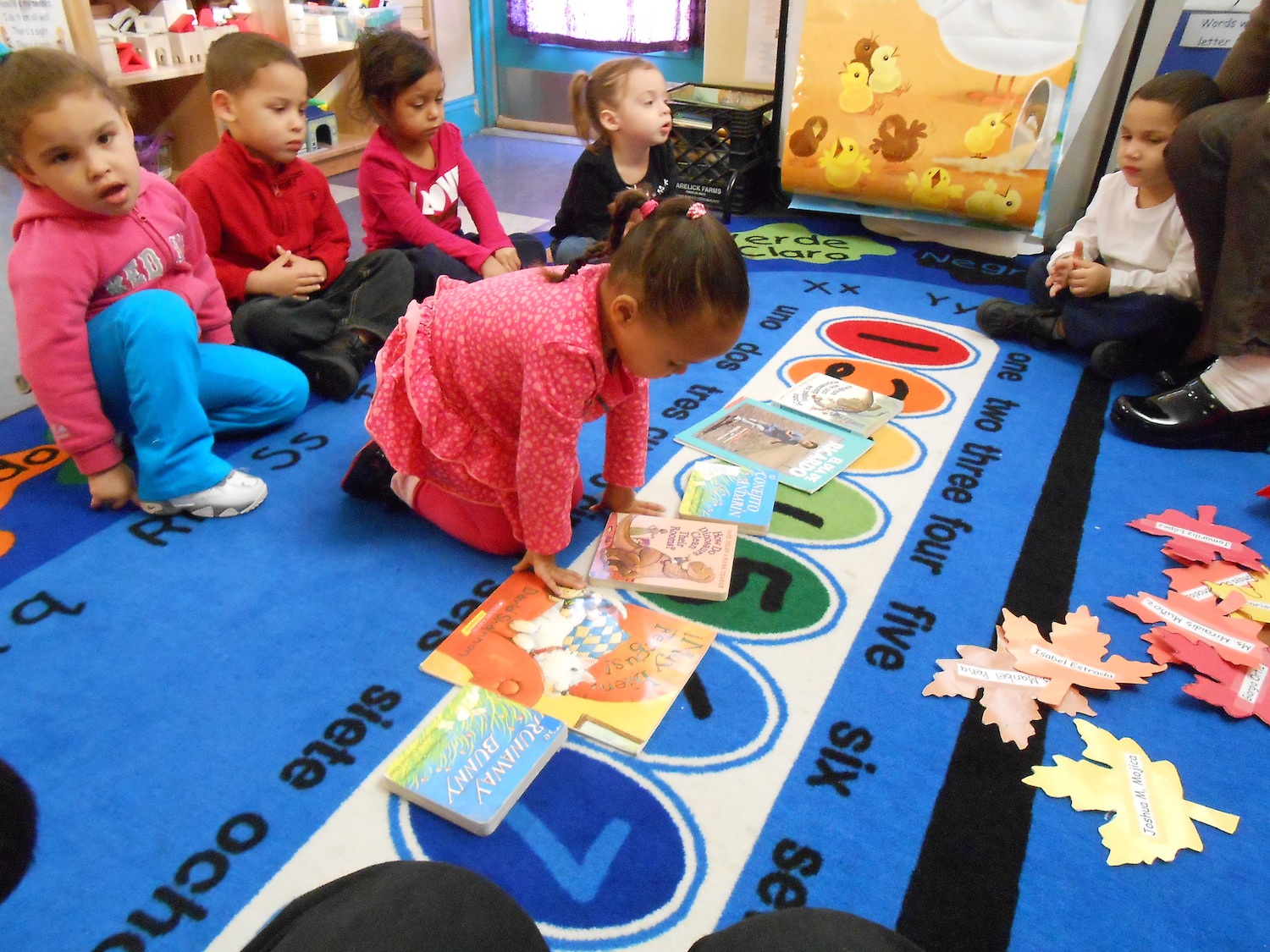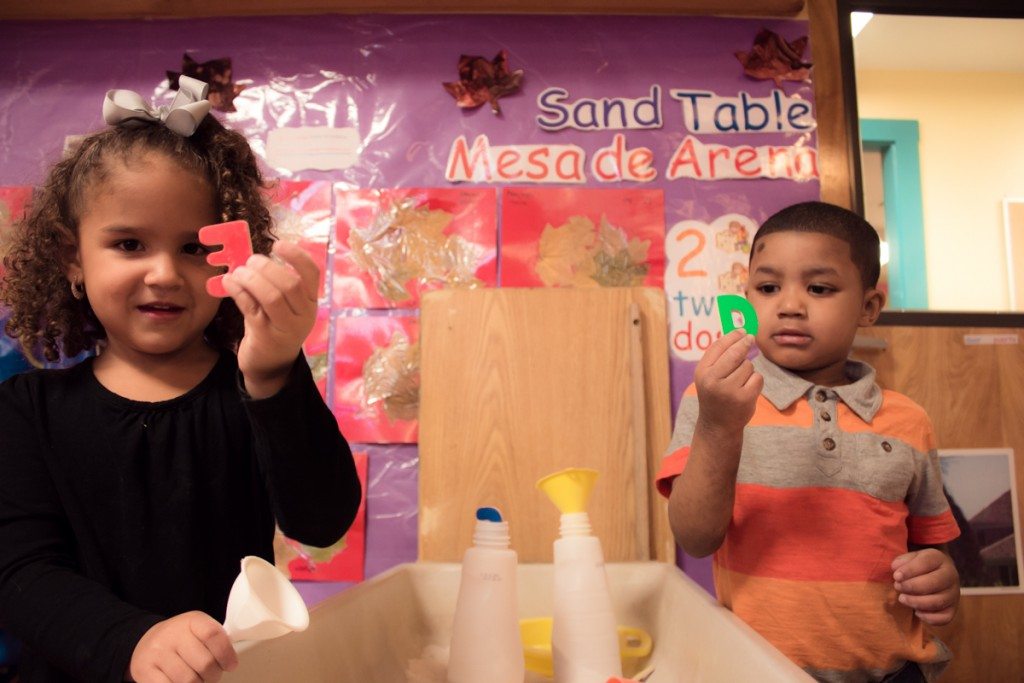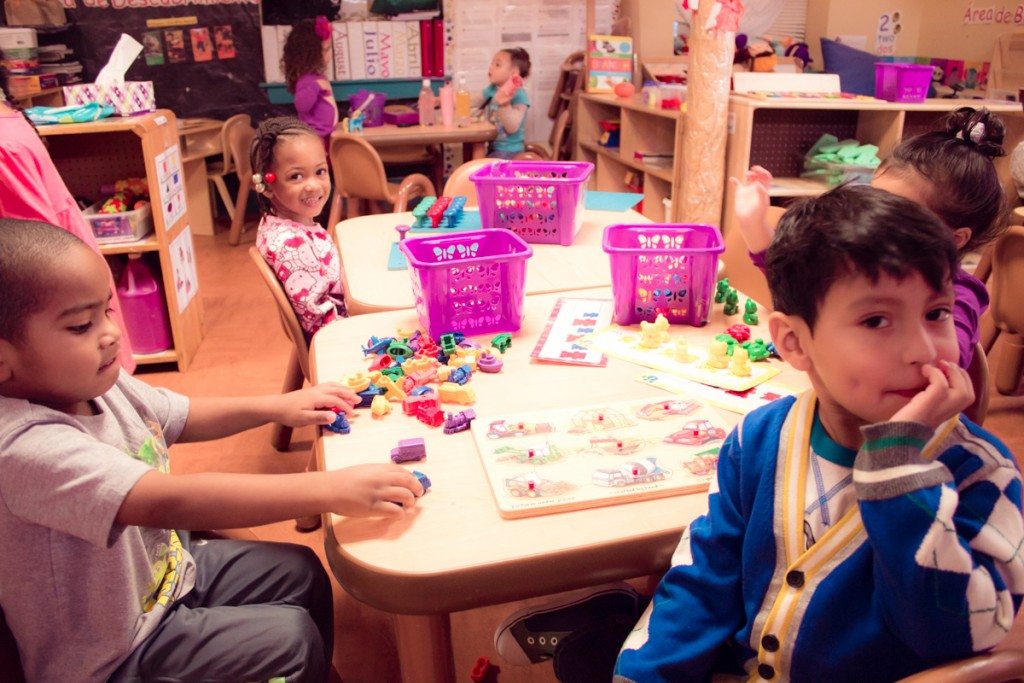
- On April 07, 2015
- In Education
What You Didn’t Know about Bilingual Education
IBA is an institution that provides an ample selection of programs for social advancement across all ages, as well as affordable housing. For the youngest of our community we have a bilingual preschool to serve their needs best. Through the years we have seen first hand the advantages a bilingual education has on the development of children, but don’t just take our word for it.
We had a chance to talk to Dr. Gigi Luk, currently an assistant professor at Harvard Graduate School of Education. She has devoted her career to research the language and cognitive effects from speaking two languages on a daily basis from young children to older adults. We wanted her expert opinion about the science behind experiencing an education in two languages.
 It is a myth that speaking two languages in school might confuse children. “Rarely do children get confused, the confusion belief comes from outdated studies done in the 1920s and 1930s,” Dr. Luk explained. She went on to say how acquiring a new language is a useful skill like any other and can even be an advantage, “Having the same information presented in two languages is helpful, the child will be more flexible understanding the concepts,” she said. “If you ask any parent is it good for your child to learn another skill? Be it playing violin or identifying birds? These are all skills, no parent would say acquiring another skill is a bad idea.”
In IBA’s case specifically, Dr. Luk explained the model is particularly successful. “I recommend bilingual education, but it has to be done in a very sensitive way,” she said. “The implementation has to be specific in addressing the needs of the children and their families.” This means that the languages taught have to be identified with their community, IBA teaches English and Spanish to a majority of children who mostly speak Spanish in their homes. As Luk explained, “They are going to learn in two languages, one of which would be their more comfortable home language. Spanish is a home language that they can enrich by their home interaction with their parents and English is their community language.”
It is a myth that speaking two languages in school might confuse children. “Rarely do children get confused, the confusion belief comes from outdated studies done in the 1920s and 1930s,” Dr. Luk explained. She went on to say how acquiring a new language is a useful skill like any other and can even be an advantage, “Having the same information presented in two languages is helpful, the child will be more flexible understanding the concepts,” she said. “If you ask any parent is it good for your child to learn another skill? Be it playing violin or identifying birds? These are all skills, no parent would say acquiring another skill is a bad idea.”
In IBA’s case specifically, Dr. Luk explained the model is particularly successful. “I recommend bilingual education, but it has to be done in a very sensitive way,” she said. “The implementation has to be specific in addressing the needs of the children and their families.” This means that the languages taught have to be identified with their community, IBA teaches English and Spanish to a majority of children who mostly speak Spanish in their homes. As Luk explained, “They are going to learn in two languages, one of which would be their more comfortable home language. Spanish is a home language that they can enrich by their home interaction with their parents and English is their community language.”
 In general, there is ample behavioral evidence that shows that people who grow up with two languages are more sensitive to different sound structures, “this is very good because they have an enriched experience because of their diverse language exposure,” Dr. Luk said. There aren’t many studies of children’s brains yet, but there is evidence that suggests that thought process is different in bilingual children as opposed to monolingual children.
There are currently two studies in Europe focusing on children’s brain structures, “the highways in our brain that connect distant brain areas,” that have determined that bilingual children who speak two languages from birth have these more integrated than monolingual children or children that learn a second language later in life.
There is still a lot more to find out about the brain, but one thing is for certain, speaking two languages is an asset in today’s world. It will place you on top of the resume piles when applying for jobs, it looks great on college applications, and in our global society it is useful in many everyday situations. In a country like the U.S., being able to navigate across cultures is essential, and having another language on your repertoire is definitely a step in the right direction.
That’s what IBA’s Bilingual Preschool is all about, giving your children the tools they need to make their mark in academic learning and beyond....
In general, there is ample behavioral evidence that shows that people who grow up with two languages are more sensitive to different sound structures, “this is very good because they have an enriched experience because of their diverse language exposure,” Dr. Luk said. There aren’t many studies of children’s brains yet, but there is evidence that suggests that thought process is different in bilingual children as opposed to monolingual children.
There are currently two studies in Europe focusing on children’s brain structures, “the highways in our brain that connect distant brain areas,” that have determined that bilingual children who speak two languages from birth have these more integrated than monolingual children or children that learn a second language later in life.
There is still a lot more to find out about the brain, but one thing is for certain, speaking two languages is an asset in today’s world. It will place you on top of the resume piles when applying for jobs, it looks great on college applications, and in our global society it is useful in many everyday situations. In a country like the U.S., being able to navigate across cultures is essential, and having another language on your repertoire is definitely a step in the right direction.
That’s what IBA’s Bilingual Preschool is all about, giving your children the tools they need to make their mark in academic learning and beyond....
